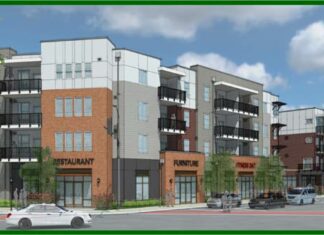Placer County is seeing encouraging signs of progress in its efforts to help uninsured residents get health care coverage through the federal Patient Protection and Affordable Care Act.
Placer County’s responsibilities in health care reform include enrolling uninsured residents who became eligible for Medi-Cal Jan. 1 and helping residents apply for coverage through the Covered California Health Benefits Exchange. Another key focus for Placer County is safeguarding its budget from negative reform-related impacts.
A month after the act went into effect, Placer County already is near the 65 percent mark in its drive to help newly eligible residents enroll in Medi-Cal, the state’s Medicaid Program that provides medical, mental health and other care to millions of Californians.
Reaching the 65 percent mark so quickly is noteworthy because Placer County already is within range of the 75 percent milestone that federal and state officials expect the county to reach by 2016.
“It is reassuring to know so many uninsured Placer County residents already have been able to get Medi-Cal coverage,” said Health and Human Services Director Jeffrey S. Brown. “The Human Services Division has done an outstanding job meeting our obligations in the most responsive way to our residents: making them aware of their options, answering telephone calls without delay, helping with the application process and finding solutions to problems as they arise.”
State law generally requires counties to be providers of last resort to indigent adults, but health care reform is shifting more responsibility to the state for serving indigent adults. As part of its 2013-14 budget, the state enacted a “realignment” that is shifting $1.3 billion from counties to the state. The funding had supported county indigent health and public health costs mandated by the state.
The Placer County Board of Supervisors dealt with a key realignment issue on Jan. 21, choosing between two options for determining how much health care funding will be redirected from Placer County to the state. The board voted unanimously for an option known as the 60-40 Formula that will shift approximately 60 percent of the annual funding that has been available to Placer County since 1991 for state-mandated public health and indigent health services.
Assistant Director of Health and Human Services Graham Knaus told board members that the formula will result in a shift of approximately $1 million from Placer County to the state this fiscal year and $3.5 million annually in following years. “At this time, we do not anticipate a negative impact on our budget,” he said, noting that the lost revenue likely will be offset by savings from Placer County’s reduced responsibility for providing health care to indigent adults.
Approximately 15,000 Placer County residents became eligible for Medi-Cal this year when the state expanded the program to include couples who do not have children and single adults from 19 to 64 years old who meet income guidelines.
Human Services reported that approximately 9,200 newly eligible Placer County residents have enrolled in Medi-Cal. The total includes residents in two groups:
- Approximately 3,900 adults who participated in Placer County’s Low Income Health Program in the past, but were switched to Medi-Cal Jan. 1. Placer County established the Low Income Health Program in 2012 to begin bridging indigent health care responsibilities to the federal and state governments.
- Approximately 5,300 other uninsured adults who processed Medi-Cal applications through Human Services between Oct. 1 and Jan. 15. State officials have not released official county-by-county breakdowns, but Human Services has tracked the volume of applications on its own.
“I couldn’t be more proud of my team’s efforts and the positive feedback we are receiving from the public,” said Human Services Director Cheryl Davis. “One resident sent us an e-mail thanking my staff for the personal touch and expert guidance they used to help his daughter navigate a process that initially seemed confusing and intimidating. Another praised a team member as the most pleasant, helpful person she had ever encountered. A third recalled being treated with respect, dignity and a smile each time he visited Human Services seeking answers and assistance. Others reported similar experiences with a consistent refrain: the team was willing to go beyond the call of duty to help the public.”
Placer County had an estimated 33,000 residents who were uninsured before federal health care reform took effect.
Approximately 9.8 percent of Placer County’s population was uninsured, well below the statewide rate of 22 percent and the nationwide figure of 18 percent.
In Placer County, approximately 45 percent of last year’s uninsured population is now eligible for Medi-Cal.
The other 55 percent is eligible to obtain coverage through Covered California, in many cases with costs reduced by tax credits.
State officials have not released county-by-county figures, but estimate that approximately 625,000 Californians enrolled in plans through Covered California between Oct. 1 and Jan. 15. Almost 425,000 were eligible for subsidies.
Human Services has been busy helping residents learn about health care reform and apply for health care through Covered California. With community partners, it has hosted a series of informational presentations at churches, libraries, schools, community festivals, sporting events and other locations.
Its call center is open from 8 a.m. to 8 p.m. Mondays through Fridays and 8 a.m. to 6 p.m. Saturdays. Its telephone number is 888-385-5160.
(21+ years strong)
Welcome to the brighter side!
Get in front of local customers! 24/7 (365)





















